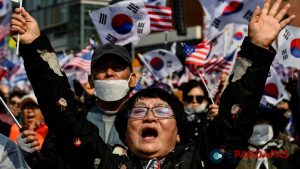
Writ Petition Challenges TikTok Ban in Nepal

The government’s decision to ban the Chinese social network TikTok has prompted a legal challenge, as eight writ petitions were filed against the ban in the Supreme Court on the first day it resumed office. The move to prohibit TikTok was announced during a cabinet meeting last Monday, with officials citing concerns about the alleged disruption of social harmony by the platform.
Prominent figures in the legal community, including senior advocate Dinesh Tripathi and advocate Swagat Nepal, have spearheaded the legal challenge, contending that the ban infringes upon the freedom of thought and expression guaranteed to citizens. According to Govinda Prasad Ghimire, the information officer of the Supreme Court, eight petitions challenging the TikTok ban have been lodged, and the preliminary hearing is scheduled for Monday, Mangsir 4.
Legal practitioners argue that the government’s decision to ban TikTok merits careful examination, asserting that it encroaches upon the fundamental rights of citizens. The writs filed are currently under scrutiny as the legal battle unfolds.
The government’s ban on TikTok was justified by claims from the public that the platform fosters hate speech. Rekha Sharma, the country’s minister for communications and information technology, expressed concerns during the cabinet meeting, stating that TikTok was disrupting “our social harmony, family structure, and family relations.”
The government maintains that attempts were made to engage with TikTok on multiple occasions to address concerns about the content. However, the company allegedly declined to cooperate, prompting Narayan Kaji Shrestha, the home minister, to advocate for a comprehensive ban on the app, citing the difficulty of individually removing offending videos.
In response to the ban, the government issued a directive outlining forbidden content for all social media platforms. Prohibited content includes hate speech, the promotion of sexual exploitation and drugs, dissemination of fake news, terrorism-related messages, and the posting of private photos without consent. Social media companies are now required to establish liaison offices in Nepal to better address public concerns and promptly remove offending content.
In a bid to enhance regulatory oversight, the government has mandated that tech giants such as Facebook, X, and Instagram set up offices or appoint representatives in Nepal within three months. Failure to comply may result in these platforms facing a shutdown akin to TikTok.
The Indian government banned the Chinese video app on June 29, 2020 in view of the app being engaged in activities that are “prejudicial to sovereignty and integrity of India, defence of India, the security of the state and public order.” The United States, Australia, and several European countries have also taken measures to restrict the app on government-issued mobile phones among civil servants, citing national security concerns.
- PM Oli Hails Thailand Visit and BIMSTEC Summit Participation as Fruitful and Impactful
- PM Oli Vows to Deepen Nepal-India Relations Following Productive Talks with Indian Counterpart
- Kathmandu Chokes on Toxic Air as Health Concerns Mount
- Myanmar Earthquake Death Toll Surpasses 3,300, UN Calls for Global Support












Comments